
Jose Goncalves of the New England Revolution is one of the best defenders in the MLS, he helps greatly stabilized the New England defense. He operates at the left-back posititon and also as a center-back. He provides outstanding leadership to the Revs as the Captain of the team. Jose talked to Haititempo.com about playing for the Revolution, Portugal and what it takes to become a professional soccer player.
1. Jose, how did you get started playing soccer?
“I was at home with my father and we were watching the Portuguese League. Benfica played and my father, as a young kid was a Benfica fan. When I watched that game, I realized that, wow, that’s really nice – the crowd and everything – and I had a dream to play soccer and to be a professional after this game. So that’s how I started playing soccer.”
2. Did you play any other sports growing up?
“I played basketball because my best friends used to play basketball and I play sometimes. I do other sports like hockey or tennis, but soccer was always my favorite so I ended up playing soccer.”
3. What is your favorite childhood soccer memory?
“I think when I was thirteen I went to San Siro, the AC Milan stadium and I was a big fan of Paolo Maldini. He was the captain at the time for AC Milan and I had a chance to see him play. It was amazing. I was shocked because the stadium was so big and I could see, for me, the best defender in the world and I think that’s my best childhood soccer memory.”
4. Who were some soccer role models you looked up to when you were coming up?
“Paolo Maldini from Italy, the AC Milan captain. He’s always been a model for me and Roberto Carlos from Brazil because they are always respectful on the pitch, out of the pitch and they work really hard. They’ve won so many titles with the club, with the country, and they’re really people you can learn from. They are not the kind of people who are arrogant or bad with other players or care only about themselves. They also care about the team and they’re really professional and I hope I can also have such a long career. They play until they’re 38 – 39 because they care about themselves and that’s why Paolo Maldini is my model.”
5. Tell us about your experience playing for Portugal, your national team?
“It was good. I started to play young with the Swedes. I was in Switzerland and I didn’t know if I would play one day for Swedish national team or not because I grew up in Switzerland, but my blood is Portuguese. For me, it was a big dream to play for Portugal because it’s a big country of football and I had the chance to play with Portugal in 2006, first under 21 and since then, I always played in Portugal. In 2008 – 2009, I was in Germany and I had my first pull up when Carlos Queiroz was the manager of Portugal so even if I was injured, I went. For me, it was amazing to be part of this group, such great players. This was also amazing because you have worked for so long and when you realize what you have achieved where you are, you must be proud about yourself. This is what football is all about for me – hard work to achieve what you’ve always wished.”
6. How do you motivate yourself to play at a very high level consistently?
“Every day, when I wake up, I think ‘it’s a new day.’ So even if I am not feeling very well – sick, tired – I say ‘Let’s go to the pitch and do the work. Let’s be focused for a couple of hours and after, you can go home and switch off.’ When I go home, I try to switch off. I have a dog. I go in the park with my dog and play with him, hang out with friends, go to the cinema, have a drink. I think it’s very important to switch off so the next day I am ready to motivate myself well. I have to go to work. I can say work, but it’s also a game. You must take this as a game because when I was a kid, I was going to play soccer as a game for fun and I’m still playing for fun, but it’s more serious now.”
7. What are the differences between the other leagues you’ve played in Europe and the MLS for you as a player?
“I’d say the difference between the MLS and the other leagues is that the other leagues, I think, have more experience. Right now, they are one step forward and MLS soccer is just starting develop now. I’m really impressed because the level is good in MLS and, of course, in Europe because they build such a great club, like Barcelona. They have such big stories so players go there and you know if you play for Bayern Munich or Barcelona, you’re going to be a good player because they have a good infrastructure. Here in MLS, every club has a good infrastructure, but they need more of this kind of experience, people who play at a higher level in other countries, to bring that into the MLS so they can develop better.”
8. What does it mean for you to be the captain of the team?
“It means a lot. I can say I feel a lot of the club’s trust in me – the manager, the players, and the staff – and for me, it’s a position that I take really seriously. As a captain, I must lead the guys, motivate the guys and also motivate myself and this is really important. Yes, I’m really proud to be at this position and hopefully we can achieve something this year. I came to the Revs with the mind that I can achieve something with them. Since I arrived, I believe that and I keep doing that.”
9. Who is the smartest player you ever played with?
“I think I can say Joao Moutinho from the Portuguese National team. He played in Portugal and now he’s in Monaco. He’s a really clever midfielder. He runs a lot and you think sometimes he’s tired, but he’s not and he’s really smart and he’s really clever. He plays some good balls and he’s really calm on the ball. I’ve played with a lot of smart players; I can say they are all smart. But I think he’s the smartest. He’s really quiet – quiet in the sense that he’s not rushing and he’s always in a good position to play the best balls.”
10. What advice would you give to young players who want to become professional soccer players?
“Work really hard. It’s not as easy as people think to be a soccer player. I cannot just buy some boots and go to a club and be a professional. It’s a long road. And be honest with yourself; respect yourself because you never know what’s going to happen the next day. Let’s say you pick up an injury, even if you’re the best player in the world, you can pick up an injury and that’s the end of your career. I think you must be the same as you were five years ago or before you turned professional. You must stay the same. Respect your friends and family. I think it’s very important, once you get the injury, that you have friends and family. I think just live the dream if you have the chance and enjoy football, playing soccer. You travel a lot, see new things and learn a lot from other coaches and people. That’s the best advice I can give them”
By Benson Petit-Clair for Haititempo.com / July 2013



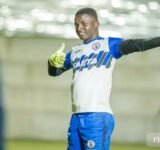
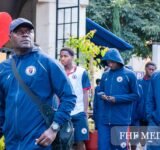


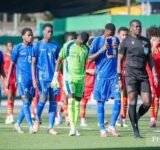
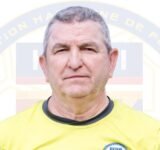


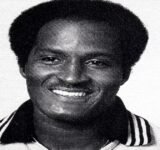

 Home
Home Store
Store Contact
Contact